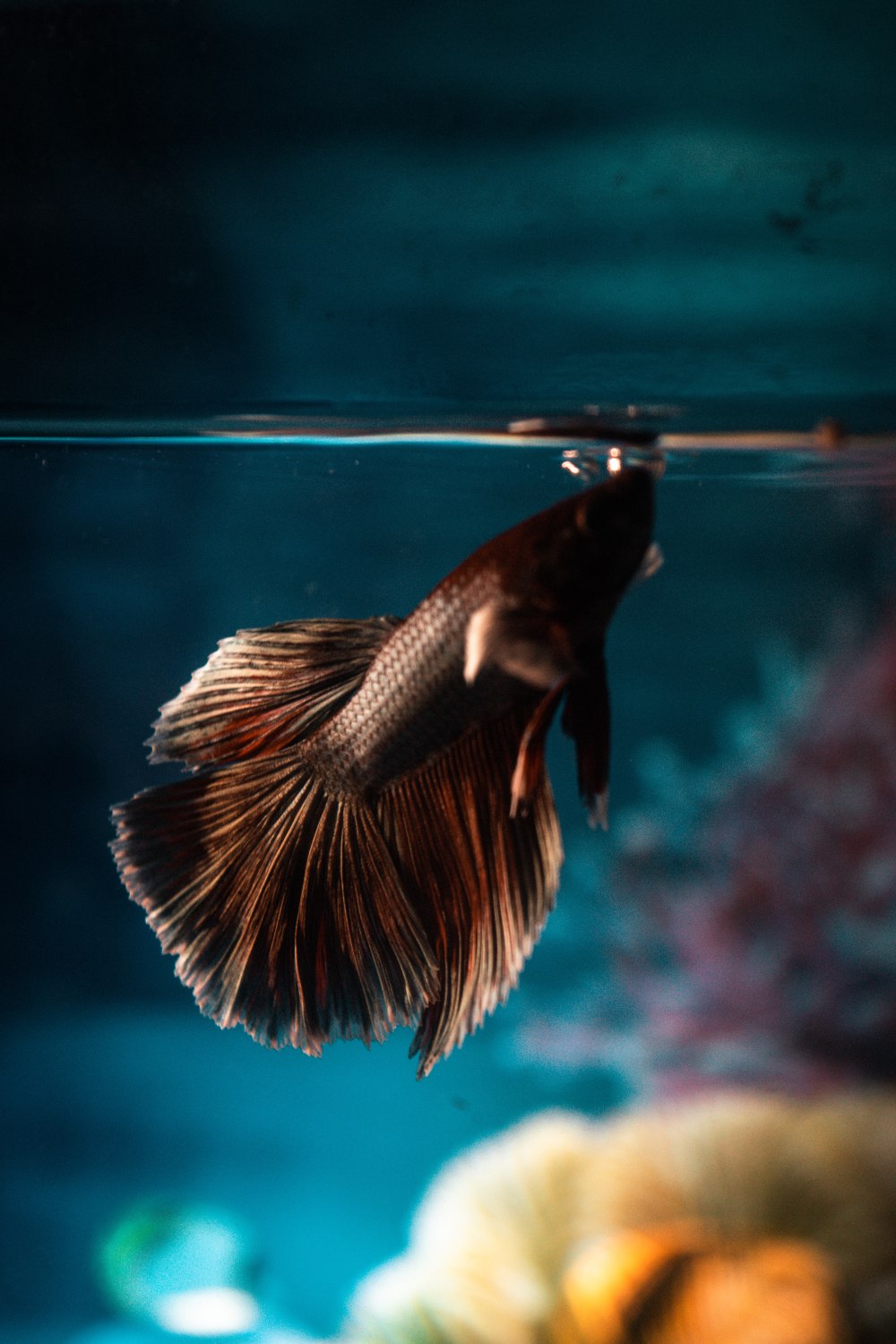The question of whether betta fish can live in tap water is one that has been asked by aquatic animal enthusiasts for many years. It is an intriguing conundrum, as it involves a unique interplay between biological needs and environmental conditions.
To shed light on this complex issue, one must examine both the potential benefits and drawbacks of allowing betta fish to inhabit such environments.
As with any topic related to aquatic animals, there are several factors which need to be taken into account when considering if betta fish can survive in tap water. These include parameters such as oxygen levels and pH balance within the environment; likewise, other considerations like temperature and chemical composition should also be evaluated closely.
Examining all relevant aspects carefully will help determine what kind of measures may need to be implemented in order to ensure optimal living conditions for these exquisite specimens.
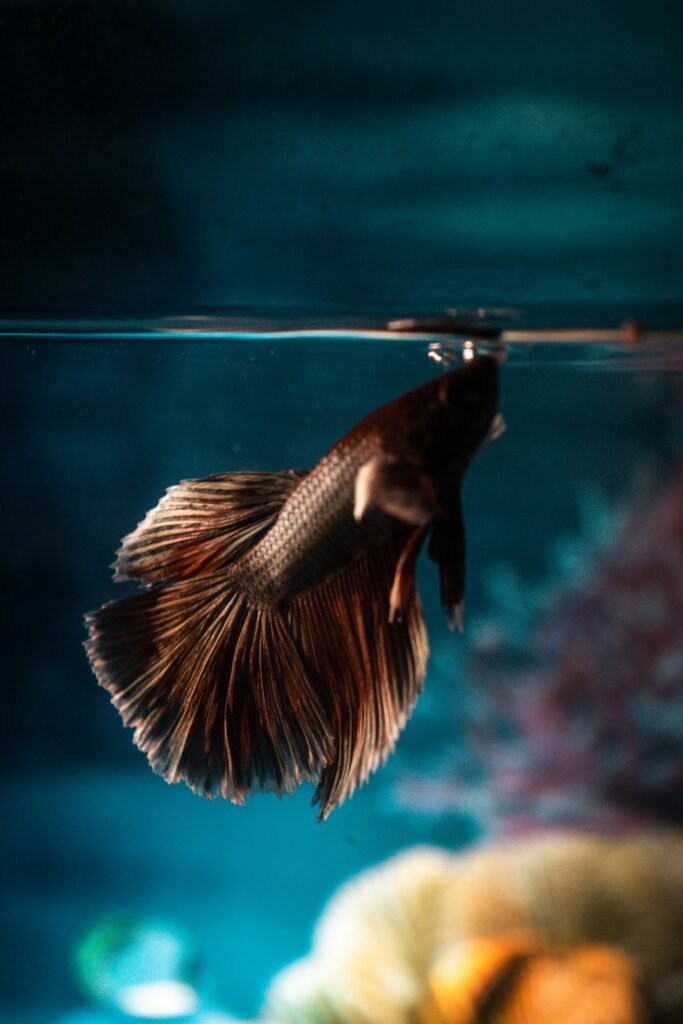
Do Betta Fish Need A Special Type Of Water?
Betta fish, also known as Siamese fighting fish, are a popular species of freshwater aquarium fish. As they thrive in warm waters with high oxygen levels, it is important to understand the type of water that betta fish need in order for them to live healthy lives and express natural behaviors.
The ideal water conditions for betta fish include temperatures ranging from 75-80°F along with pH values between 6.8 and 7.5. To maintain these parameters, many aquarists use an aquarium water conditioner, which helps remove chlorine and chloramine from tap water while also helping reduce nitrates, ammonia, heavy metals and other toxins found in untreated tap water. This makes it easier for hobbyists to set up their tanks quickly without having to worry about complex processes like cycling the tank before adding any inhabitants.
In addition to using an aquarium water conditioner when setting up a new tank, regular partial water changes will help keep your betta’s environment safe and clean by removing decaying matter and waste that could otherwise cause harmful spikes in ammonia levels or dangerous drops in oxygen concentrations.
Regular testing of the tank’s parameters should be done so that any issues can be addressed promptly if necessary. By ensuring proper maintenance on both a cyclical basis (with periodic water changes) and daily basis (testing the parameters), you can create an optimal environment for your beloved pet bettas.
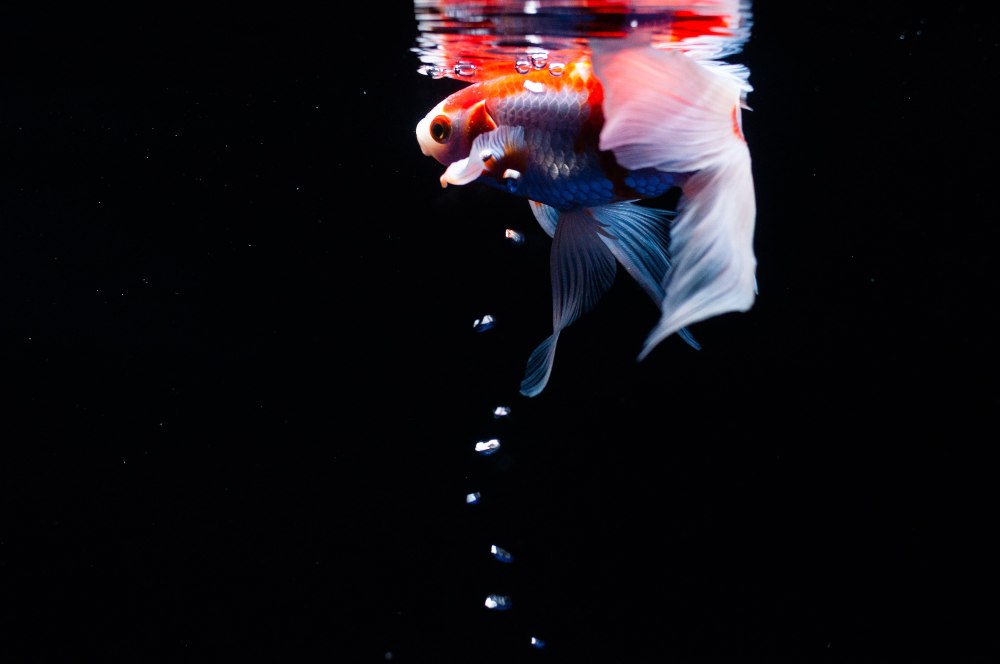
Can You Use Tap Water For Betta Fish?
Betta fish kept in tap water may be at risk of certain health issues due to the presence of chlorine and other chemicals.
Chlorine in particular may cause irritation of the gills and skin, and in some cases, may even lead to death.
Chemical treatments such as water conditioners can help to remove chlorine and other contaminants from the water.
However, regular water changes are still recommended to ensure a healthy environment for the fish.
Health Risks
The use of untreated tap water in a fish tank can be detrimental to the health and wellbeing of any aquatic animal, especially betta fish.
Unfiltered tap water contains chlorine and other chemicals that are used to treat it for consumption but may cause harm to the delicate scales of bettas.
Even if these levels are not immediately toxic, long-term exposure could lead to severe behavioral abnormalities or even death due to toxin buildup over time.
As such, it is highly recommended that all aquarists take steps to ensure their tanks contain treated tap water when caring for betta fish.
This treatment process involves using specialized products designed specifically for aquariums which will help remove harmful chemicals from the water while keeping beneficial minerals intact.
This ensures a safe environment where bettas can thrive without fear of chemical imbalance or toxicity within their habitat.
Chemical Treatments
When considering the use of tap water in a betta fish tank, it is important to note that chemical treatments may be necessary. Depending on the quality and composition of the water being used, additional steps may need to be taken in order to ensure a safe environment for these aquatic creatures.
Chemical treatments can range from adding aquarium-specific products such as dechlorinator or conditioner to replacing some or all of the tap water with distilled water. These specialized products are designed to remove any harmful chemicals while leaving beneficial minerals intact, thus creating an ideal habitat for bettas.
It is highly recommended that aquarists take into consideration both the source and treatment methods before introducing a betta fish into their tank; failure to do so could lead to serious health risks due to possible toxin buildup over time.
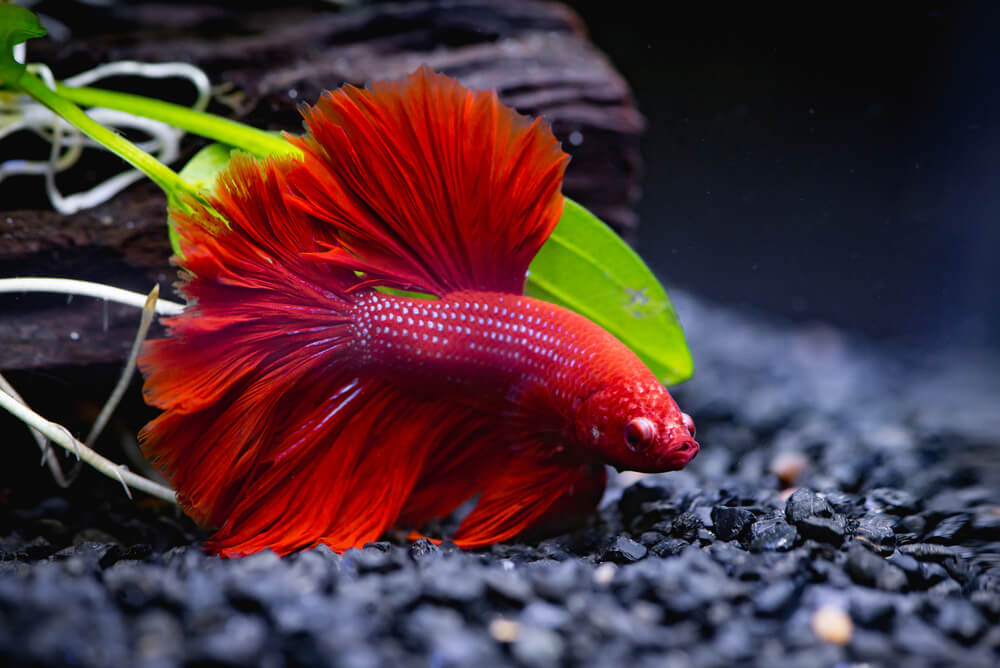
What Does Tap Water Do To Betta Fish?
Betta fish are one such species, who prefer living in water rich in oxygen which comes from fast-moving currents like those found in their native habitats. However, when kept as pets, betta fish must adjust to slower moving waters of tanks or aquariums they inhabit.
Because tap water lacks necessary minerals and elements compared to these natural bodies of water, it can cause significant harm to betta fish if not treated properly before being added into an aquarium environment. Common substances such as chlorine and chloramine can be deadly when introduced directly into the tank without proper preparations first.
To ensure safe conditions for betta fish when using tap water, homeowners should use dechlorinators available at most pet stores prior to adding new batches of water into the tank. This will remove hazardous chemicals while also helping maintain pH levels by stabilizing them within acceptable ranges for optimal health for your finned friend.
Such measures taken ahead of time will help create a more hospitable environment suitable for sustaining healthy populations of betta fish over long periods of time.
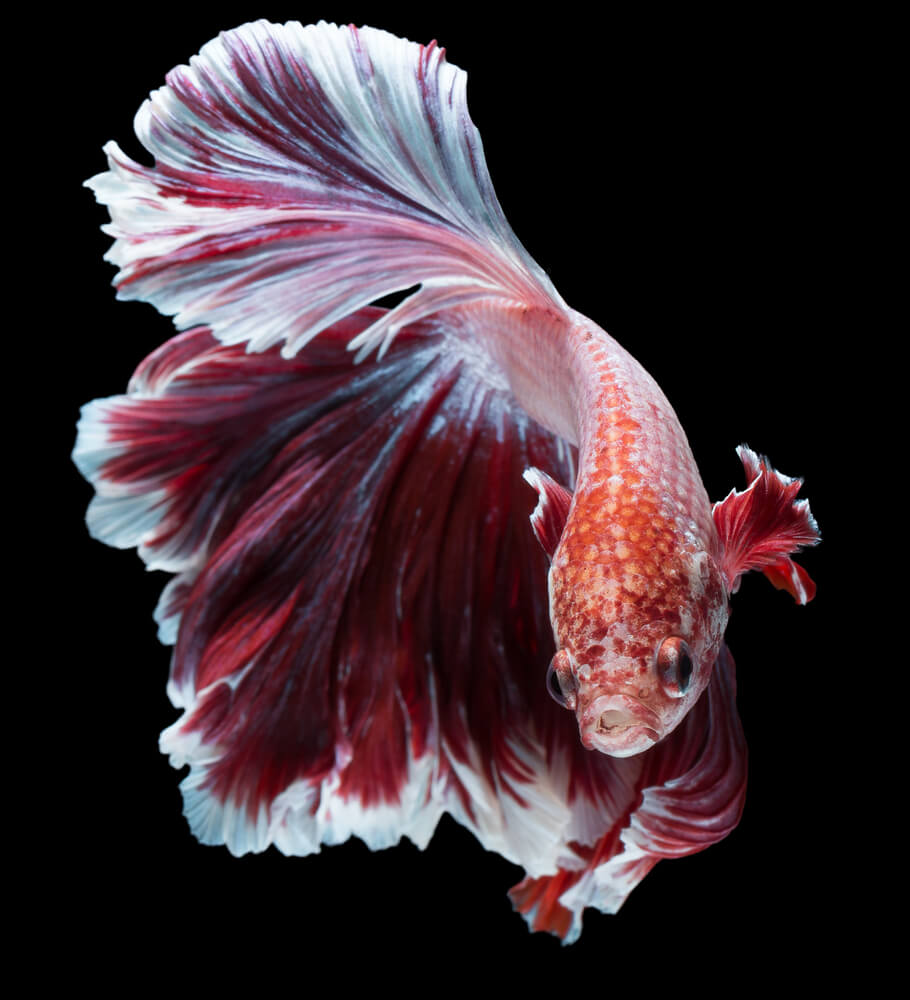
How To Treat Tap Water For Betta Fish
Betta fish are native to the tropical regions of South East Asia and prefer still, shallow waters. As such, they can generally survive in tap water that is free from chlorine or chloramine.
In order to ensure a healthy environment for betta fish living in tap water however, it is important to treat the water first. This can be done by leaving the tap water out overnight or boiling it before use. Doing so will help eliminate any harmful contaminants and allow for beneficial bacteria to grow naturally which will support a safe ecosystem for your betta fish.
In addition to treating the water through these methods, adding aquarium salt also helps make sure your betta’s home remains as close as possible to its natural habitat. A small portion of aquarium salt should be added every few weeks at approximately one tablespoon per five gallons of tank capacity. When using this method of treatment, regular testing of pH levels is essential in order to maintain an ideal balance between acidity and alkalinity.
Finally, monitoring temperature is another critical factor when setting up a betta tank with tap water as sudden changes may cause illnesses or even death due to shock. To keep temperatures stable you should avoid placing tanks near windows or other sources of direct light while investing in a quality thermometer that allows you to accurately track fluctuations over time.
With proper preparation and care taking tap water can provide betta fish with a safe place to thrive without needing additional products like water conditioners. Moving forward then we shall look into how further steps can be taken towards making tap water suitable for betta fish without the need for commercial products.
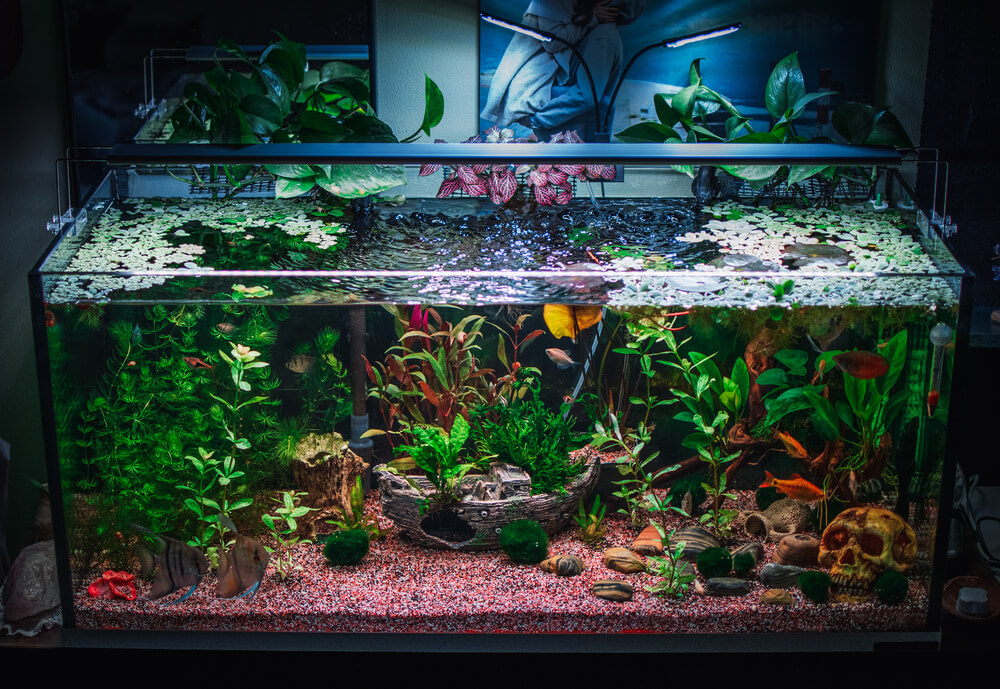
How To Treat Tap Water Without A Water Conditioner
Going back to the basics, it is a known fact that tap water can be used for betta fish. But like all good things, there are certain steps one needs to take before using this kind of water with these delicate creatures.
To put it plainly, treating the water is essential in order to make sure that your betta has an optimal environment and remains healthy. Using a water conditioner is one way to properly treat the tap water so that it’s safe for your pet. But if you don’t have access to such products or simply cannot afford them, you still have other options at hand.
The first step involves dechlorinating the water by letting it sit out overnight and adding some aquarium salt into the mix. This process eliminates some of the chlorine present in tap water while also helping create a more natural environment for your pet.
An alternative option would involve boiling the tap water prior to introducing it into the tank and then cooling off afterwards until its temperature matches that of the tank’s existing conditions. This will not only get rid of any trace amounts of contaminants but also ensure that bacteria does not form on contact as well as reduce toxic levels found within the source itself—making life easier for our scaly friends in the long run.
With these two methods combined, having clean and conditioned tap-water becomes much simpler than many expect; ultimately leading us closer towards providing our beloved Bettas with nothing short of high quality living quarters.
How Long Does It Take To Dechlorinate Water For Fish?
Tap water can pose a number of potential safety issues for fish, most notably from chlorine and other chemicals. It is therefore important to dechlorinate tap water before introducing any aquatic animals into the tank.
Depending on which method you use to dechlorinate your water, it typically takes between 15 minutes and 24 hours for the process to be completed.
The two main approaches that are available to remove chlorine from tap water involve either using a chemical neutralizer or allowing the water to sit in an open container until all traces of chlorine have dissipated over time. The former approach tends to work faster than the latter, but both will result in safe levels of chlorine after sufficient time has passed.
It’s essential not only to ensure that your aquarium contains no toxic elements such as ammonia or nitrites at high concentrations but also that there is no residual chlorine present in the tank. This means taking steps to make sure that the natural bacteria colonies necessary for maintaining healthy ecosystems within tanks are able to thrive without interference from harsh chemicals like chlorine.
By preparing ahead of time with appropriate dechlorination methods, betta fish owners can provide their pets with clean, toxin-free environments where they can live healthily and happily for years to come. With appropriately treated tap water, bettas may enjoy long lifespans typical of their species; how long exactly depends upon many factors including diet and environmental conditions.
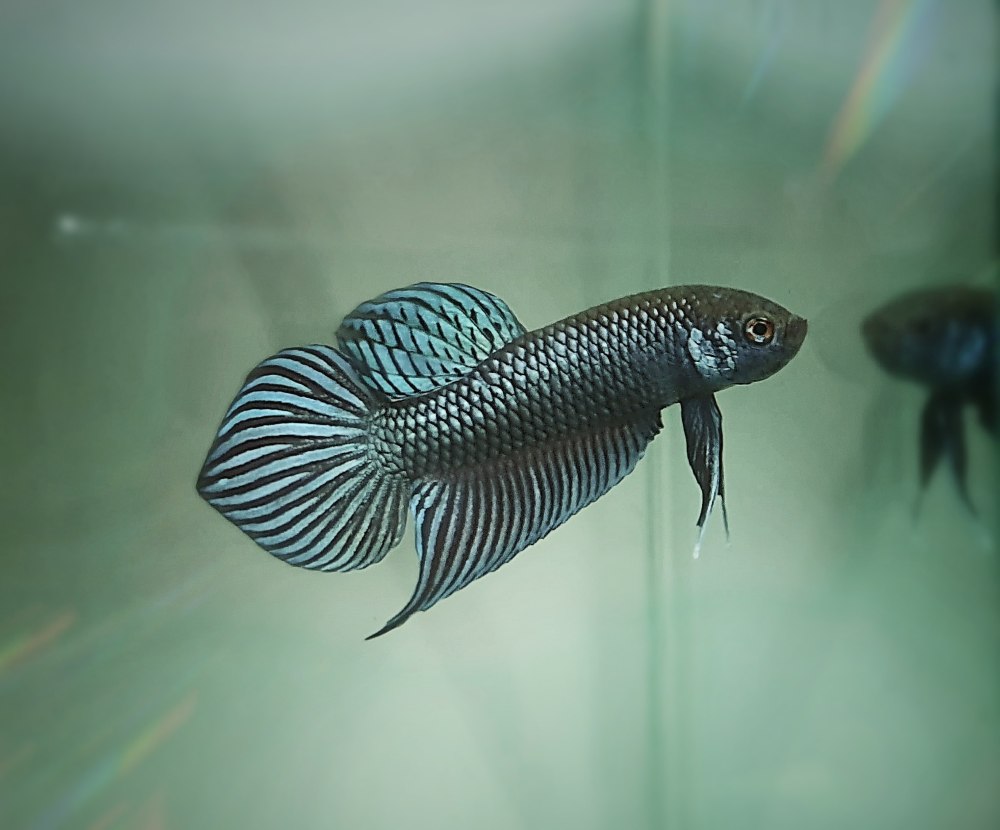
How Long Can A Betta Fish Live In Tap Water That’s Untreated?
Although betta fish thrive in filtered or heated aquariums with specific parameters kept within an acceptable range for the species, betta fish are able to survive even in untreated tap water for a short period of time.
The key is to provide regular maintenance such as partial water changes that ensure the water is not too stagnant or polluted. In terms of how long a betta fish can endure living in untreated tap water without any special additives or filtration systems, it’s rather difficult to estimate exactly. It really depends on several factors including the condition of the source water, temperature and other environmental conditions.
An aquatic animal expert may be able to give you more insight into what your particular betta needs but generally speaking, if all these variables remain relatively stable then it should be possible for your betta fish to survive indefinitely in this type of environment. The most important factor when considering whether to keep a betta fish in tap water versus an aquarium setup is regular maintenance.
Even though they can tolerate harsh conditions, it’s still important to check their health regularly and make sure there’s enough oxygenation and circulation in their tanks so that their fins don’t become affected by poor quality waters over time. With consistent care and attention, you can help ensure that your beloved pet remains healthy regardless of its environment.
Can You Use Distilled Water For Betta Fish?
One alternative to tap water is distilled water. Distilled water contains no minerals or contaminants since it has been through distillation which involves boiling the liquid to evaporate impurities and then condensing them back into a pure form. This process removes chlorine, chloramines and other chemicals found in treated tap water that may be dangerous to your betta’s health.
While there are some possible advantages such as potential pH stabilization due to lack of dissolved solids compared to tap water, overall it is not recommended for long term use as betta’s need essential electrolytes for proper hydration and metabolism.
With all this taken into consideration, it still remains unclear whether using distilled waters exclusively is beneficial for these lovely creatures though more research needs to be done before making definitive conclusions about utilizing this option over traditional means such as aging and treating tap water.
As we move forward with our exploration of different aquatic habitats for our beloved friends let us consider what else we might find when asking “Can you use spring water for Betta Fish?”
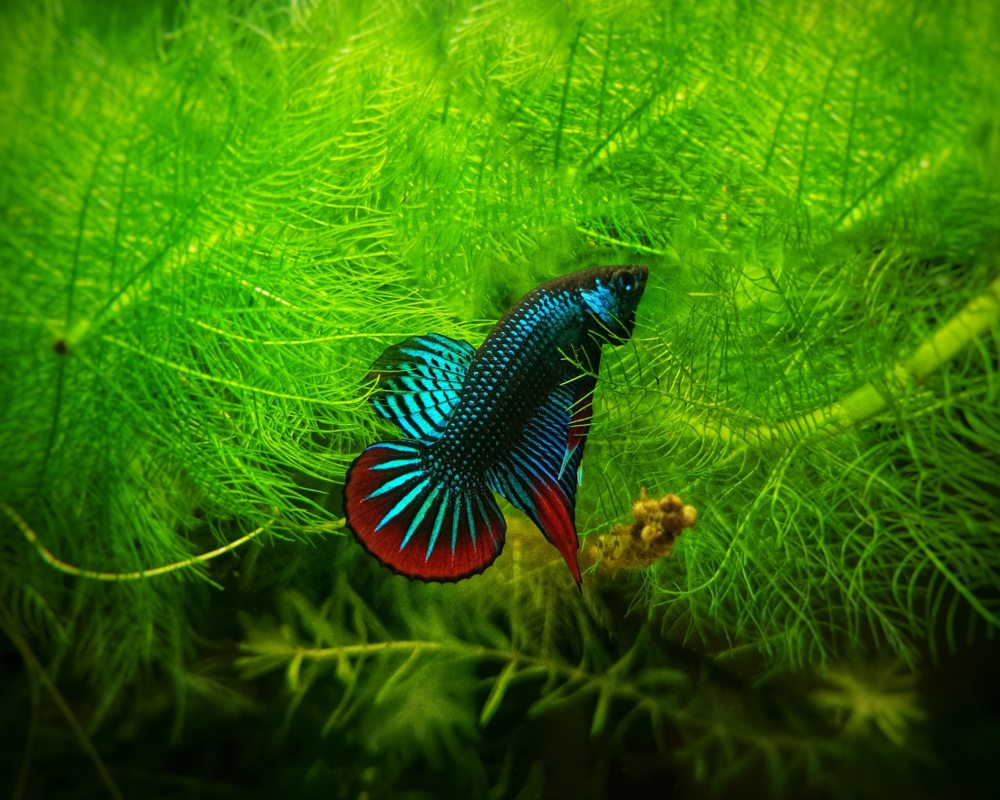
Can You Use Spring Water For Betta Fish?
The use of spring water for betta fish is becoming increasingly popular.
Generally, there are three types of spring water available: natural spring water, mineral spring water, and aquifer spring water.
Natural spring water is a great choice for betta fish since it contains many beneficial minerals and trace elements such as calcium and magnesium.
Mineral spring water is also beneficial for betta fish as it is rich in minerals and is slightly alkaline.
Aquifer spring water has the greatest benefits for betta fish, as it contains the most minerals and is the most alkaline of the three types.
To prepare spring water for betta fish, it is important to allow the water to sit for 24 hours and have an air stone to create movement and oxygenation in the tank.
Types Of Spring Water
When it comes to setting up a betta fish tank, spring water is often considered the best choice. Spring water has been filtered and purified in its natural environment over time, meaning that there are fewer contaminants than with tap water. Additionally, the mineral content of spring water can help provide an optimal habitat for your betta fish.
It’s important to note that not all spring waters are created equal. Depending on where the source is located and other factors such as climate conditions, some may contain more or less minerals than others. It’s also possible for certain types of springs to be contaminated due to agricultural runoff or industrial waste.
Therefore, it’s essential that you research any spring sources before using them for your fish tank setup.
In order to ensure quality and safety for your betta fish, look for springs labeled “drinking” or “potable” – these will have undergone additional filtration processes which make them safe for use in aquariums. Although slightly pricier than tap water, using the right type of spring water can really pay off when it comes to providing a healthy home for your betta fish.
Benefits Of Spring Water
When it comes to providing a safe and healthy environment for betta fish, spring water is an ideal choice. The natural filtration process that occurs during the formation of springs ensures that fewer contaminants are present than in tap water. Furthermore, the mineral content of many types of spring waters can help provide a better habitat for the fish by promoting their overall health.
Additionally, when compared with other sources of freshwater, spring water contains higher levels of essential minerals such as calcium which can promote strong skeletal growth and reduce stress. In addition to its beneficial properties, another advantage to using spring water over tap or filtered water is its longer shelf life. Since it has been pre-filtered naturally, there’s no need to worry about contamination from bacteria or parasites, making it suitable for use in aquariums without needing regular changes.
Moreover, since most spring waters contain carbon dioxide – something not found in tap water – they can also contribute to more stable pH levels within the tank. Overall, due to its superior safety and quality standards as well as its potential benefits for betta fish tanks, choosing spring water over alternatives should be strongly considered by those looking to create an optimal home for their aquatic pets.
Preparing Spring Water
When preparing to use spring water for a betta fish tank, it’s important to ensure that all the necessary steps are taken in order to provide a safe and healthy environment.
This can include letting the water sit for 24 hours or more before introducing any fish into the new habitat. During this time, chlorine from tapwater will dissipate, as well as remove other potentially harmful substances such as heavy metals.
Additionally, leaving the spring water out will allow gases like oxygen and carbon dioxide to become more evenly distributed throughout the tank while also allowing temperature levels to stabilize. Furthermore, if needed, various minerals can be added via specialized preparations meant specifically for aquarium tanks in order to further enhance the health of their aquatic inhabitants.
Overall, by taking these small but essential preparatory measures prior to adding fish into an aquarium filled with spring water, hobbyists will be able to maximize their chances of successfully establishing a happy home for their beloved pet bettas.
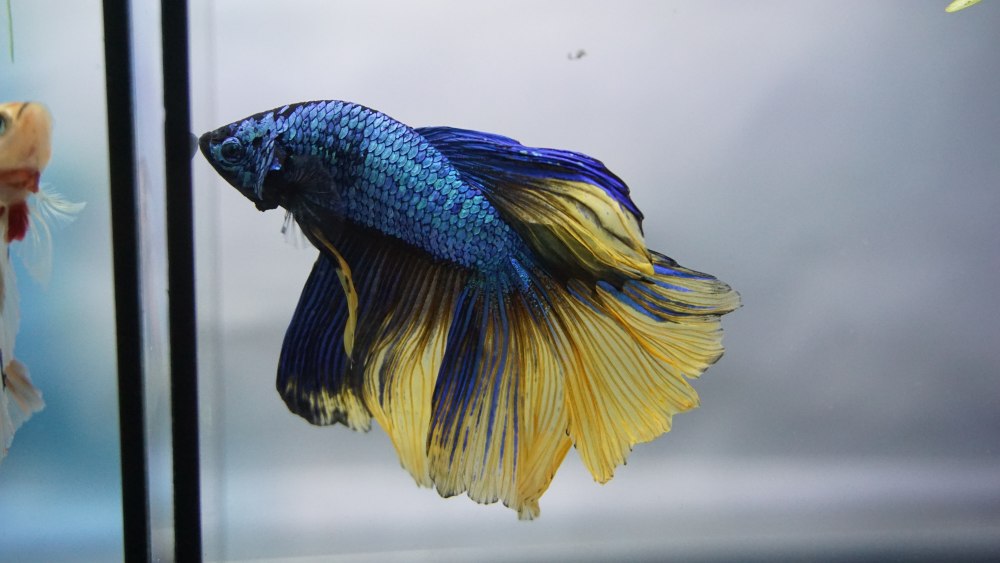
Can You Use Bottled Water For Betta Fish?
The best option for keeping betta fish healthy is using bottled spring or deionized/distilled water instead of tap.
Bottled springwater has natural minerals that help maintain a healthy environment for the bettas while still avoiding any possible contaminants from municipal sources. Deionized or distilled water is even safer since it does not contain any added minerals but might require additional supplementation depending on the type of setup you use in your home aquarium.
With either type of bottled water comes convenience; no need to worry about boiling or filtering out potential toxins before adding them to the tank – just pour it straight in!
This brings us onto our next topic: how often should you change a bettas’ water?
How Often Should You Change A Bettas Water?
The debate has been long and hard on whether betta fish are able to live in tap water. While some have argued that this is possible, it seems the greater consensus of aquatic experts agree – you should not be keeping these beautiful creatures in anything but a specially-prepared tank!
Not only can tap water contain all sorts of potentially harmful substances, like chlorine and fluoride, but its pH levels may also vary greatly from one day to the next. This makes it impossible for any regular monitoring of your bettas’ environment.
Without knowing what the pH level is at all times, there’s no way to be sure that they’re living comfortably and safely – which should always be a priority when caring for animals. So how often should you change a bettas’ water? To keep things safe and healthy, it’s best to clean 20% of their water every week.
When cleaning their water, make sure it matches their natural habitat by adding dechlorinator and checking the temperature before pouring it into their home. Doing so will provide them with a safe place to swim around happily while giving you peace of mind that their environment is being taken care of properly.
With these simple steps, we can ensure that our beloved betta fish lead a healthy life without worrying about potential risks posed by using tap water. Next up: What is the best water for betta fish?
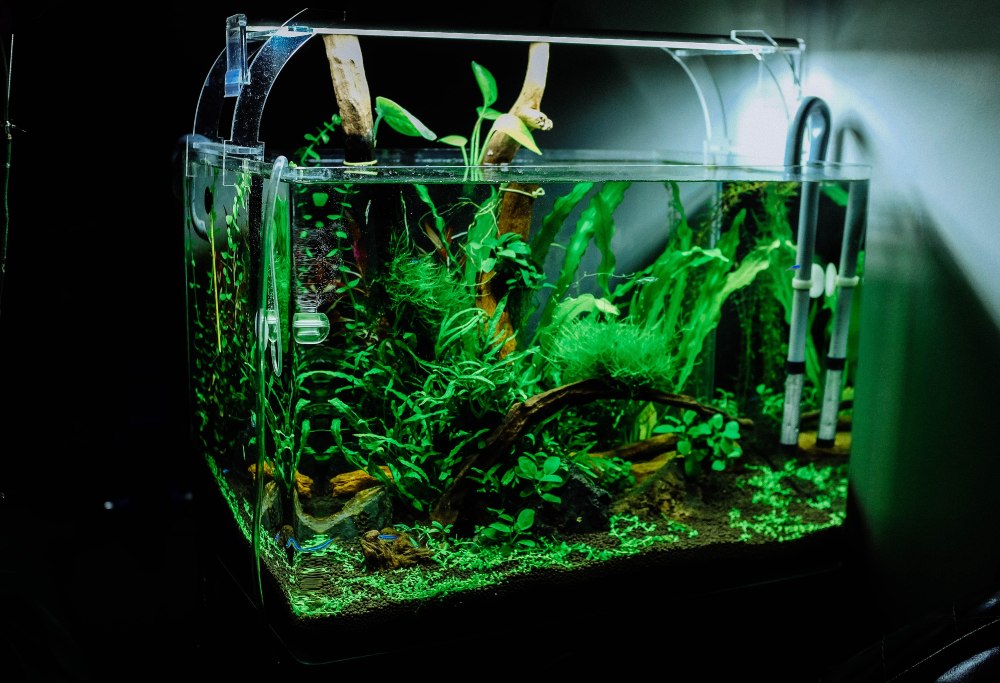
What Is The Best Water For Betta Fish?
When it comes to the health and well-being of betta fish, selecting the right water is critical. Tap water, which is often chlorinated or treated with other chemicals to make it safe for human consumption, may not be suitable for betta habitats. While these compounds are harmless to humans, some of them can cause harm to fish if they are present in too high a concentration.
For this reason, most aquatic animal experts recommend using bottled or filtered water when caring for betta fish. To ensure that their environment remains healthy and free from toxins, aquarists should also regularly test the pH levels of the tank’s water. The ideal pH range for bettas is between 6.8 and 7.5; slightly acidic conditions will promote better health than alkaline ones. Test kits designed specifically for aquarium use are available at pet stores and online retailers.
Testing monthly or biweekly will help keep your bettas thriving in their new home. In addition to avoiding tap water and testing the pH level routinely, another important step in keeping bettas happy involves providing clean water on a regular basis. Water changes should take place weekly as part of an effective maintenance routine that eliminates contaminants such as ammonia and nitrates from building up over time.
Following these guidelines will go a long way towards ensuring that your finned friends remain content and comfortable in their habitat for years to come! With cleanliness taken care of, attention must now turn to finding out what constitutes the best ph level for optimal betta wellbeing…
What Is The Best Ph Level For Betta Fish?
Water is the lifeblood of betta fish, just like it is for all aquatic animals. Choosing the best pH level for your betta is an essential element in providing a healthy and comfortable environment for them to thrive. As any aquarist will tell you, if you get this wrong then your beloved pets could suffer from ill health or even death.
The ideal pH level for most species of betta fish falls between 6.8-7.5 on the pH scale which makes them slightly acidic water creatures that prefer soft water conditions with little dissolved minerals present. However, some varieties can tolerate more alkaline waters so special consideration should be taken when selecting specific types of betta fish before adding them to their new home.
When looking at water quality tests, bear in mind that these readings are constantly changing and may not always remain within acceptable limits over time. It’s important to check regularly to make sure levels stay within range as any sudden changes may cause stress or illness in your pet bettas.
With regular testing and maintenance, though, keeping an appropriate pH level isn’t difficult – something every aspiring aquarium keeper should strive for! Understanding how different factors affect the overall balance of your tank will help ensure that your bettas live long and happy lives!
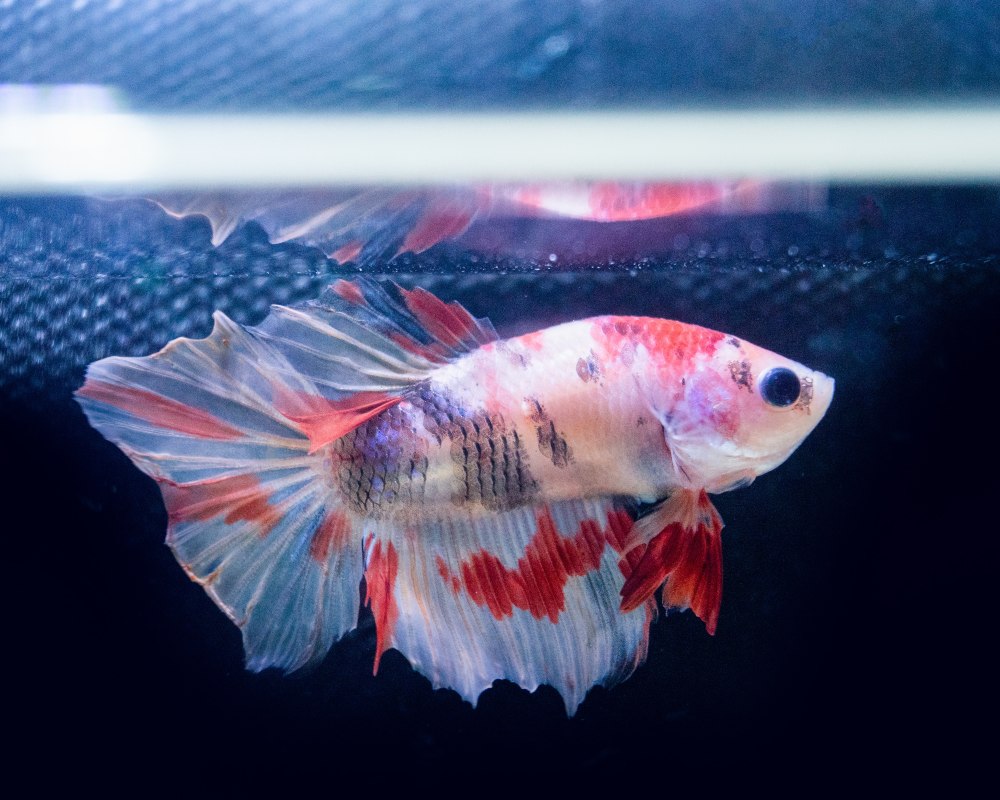
Things To Remember Before Adding Bettas To Water
When adding betta fish to water, it is essential to consider the pH level of the environment. Without maintaining an optimal balance, there may be detrimental effects on the health and wellbeing of the fish. For all species of Betta, a neutral or slightly acidic pH range between 6.8 and 7.5 provides for their best growth conditions.
Maintaining this balance can be achieved by using certain aquarium conditioners in tap water prior to introducing them into the tank. Aquarium conditioners help remove chlorine from tap water that would otherwise poison your Betta fish as well as adjust its alkalinity levels and add trace elements beneficial for their survival such as calcium carbonate which helps keep their shells strong and healthy. Additionally, these conditioners also reduce ammonia concentrations thus protecting against diseases caused by high nitrogen compounds within the water column.
Water temperature should also be monitored closely when housing Bettas since they are tropical creatures who thrive in temperamental waters with temperatures ranging around 75-80°F. Too cold or hot water may cause stress and impair immune function; therefore it is important to ensure appropriate thermal stability before introducing them into any aquatic environment.
Furthermore, regular partial water changes are key for keeping a balanced ecosystem homeostasis inside the tank while preventing potential pollutants build up due to organic waste accumulation over time.
Conclusion
Betta fish require special care to ensure they live a long and healthy life. When selecting the right type of water, it is important to consider both the pH level and hardness of the water.
Tap water used for betta fish should be conditioned with a dechlorinator before use, as tap water may contain hazardous chemicals that can harm or even kill your pet.
Distilled and spring waters are also suitable options but may need additional nutrients added if not already present in the source.
Additionally, changing out some of the tank’s old water every week will help keep ammonia levels low and maintain a clean habitat for your betta.
By following these guidelines carefully, betta owners can provide their aquatic companion with an ideal environment which will promote good health and wellbeing for years to come!
Amazon Associates Program
This article may include affiliate links. www.aquaticbuddy.com is a participant of Amazon.com Services LLC Associates Program. As an Amazon Associate, we earn a commission from qualifying purchase. www.aquaticbuddy.com participates in other affiliate programs, and receives commissions when purchases are made through the links. The cost is not inflated to account for the commission earned.

